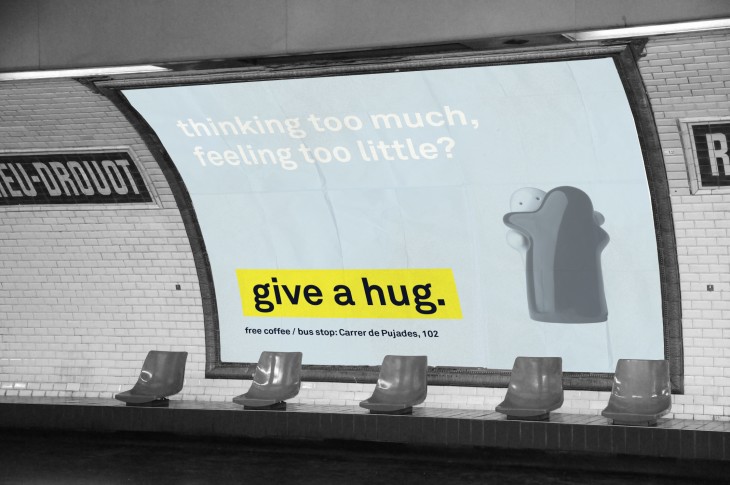The mass use of technology around the world has changed the way we relate to each other because gadgets such as smartphones and personal computers have affected deeply the management of time in daily routines. In cities, work and leisure time now revolves around interactions with digital interfaces. Which means that an average adult spends an approximate of 15 hours awake, from which 45% are spent using technological gadgets. Although technology allows us to connect in a global scale, the immersion into the digital world sometimes leads us to ignore the reality of our physical context.
With more than half of the world’s population living in urban areas, distance between people has decreased yet citizens are increasingly more isolated from each other than before. As Olivia Laing puts it: “Cities can be lonely places, and in admitting this we see that loneliness doesn’t necessarily require physical solitude, but rather an absence or paucity of connection, closeness, kinship: an inability, for one reason or another, to find as much intimacy as is desired. Unhappy, as the dictionary has it, as a result of being without the companionship of others.” In other words, loneliness that generates social isolation has been proven to cause wider effects in the long term. People with weak social ties are bound to be less productive or get chronic diseases over time. To change this, cities must foster spaces of exchange between citizens to engage in communities thus raising the levels of trust and participation inside urban environments. But, how to create empathy between citizens?
The project of Hugs of Coffee proposes a machine as an interface to relate strangers in the city through a reward-based interaction. By targeting a large quantity of users around the world that consume coffee every day, the project aims to use a ritual as an excuse to foster social transactions in the public space of cities. Basically, to get a mug of coffee the first user that approaches the machine must find and interact with another person. The machine proposes different levels of interaction to build up trust between the users until they feel confortable enough to hug each other during a certain amount of time. Hugs trigger the production of the love hormone, scientifically known as oxytocin, which influences bonding, kindness towards others and lowers stress levels.
There are two possible strategies of deployment for the coffee machine. The first one is linked directly to the public space, where the interactive device is attached to public transit stops. This would allow a greater confluence of citizens in a determined place with familiar strangers. The device would travel around the city, so that different users can have access to it. This being said, to support the deployment of the machine an advertisement campaign would be developed in the main transportation hubs, to attract more users to the intervention. The second strategy would be related to productive private spaces such as offices and universities. Although it might not be a a permanent installation, the machine can serve as an exchange point between coworkers or classmates that belong to the same community but haven’t had the opportunity to interact before.

The technical development of the project can be found here:
https://www.iaacblog.com/programs/empathy-machine/
Hugs of Coffee is a project of IaaC, Institute for Advanced Architecture of Catalonia developed at Master in City and Technology in 2016 by:
Students: Mayra López
Faculty: Tomás Diez – Mathilde Marengo